An Interview With Winnie Mshindo about Volunteering in Tanzania
Winfrida “Winnie” Mshindo joined the Global Volunteers staff in 2017 and became Tanzania Team Leader in 2018. In the years she served on staff, she contributed significantly to the development of the RCP Program – supporting new RCP families, and managing all aspects of the volunteer service program, including logistics from the volunteers’ arrival through the end of their service on the project assignments. She shares her background and some highlights of her time working in the Ukwega Ward.
Winnie Reflects on Growing Up in Iringa
I am the second of two daughters in my family. My father passed away in 2015, but my mom took fully responsibility to help us reach where we are today. I think of her as a super woman. She made sure that we went to the best schools for better education and that we ate properly. She gave us everything she was able to to give us a comfortable life. My mother and my sister both work at a bank. I love the Iringa Region and I wouldn’t wish to live anywhere else.
I went to a primary school which taught only Swahili and I had trouble learning English, which made me lack confidence sometimes. But for secondary school, my mother took me to one of the best schools where students spoke English all the time and that is where I improved my English. I’m proud of who I am today because of my mother.
Winnie’s Experience with Global Volunteers
I love everything about Global Volunteers. Facilitating volunteer orientation and presentations has built up my confidence; engaging volunteers in different tasks and supervising them helped me to become more organized, professional, and efficient as a leader. Exposure to volunteers with such varied backgrounds has given me an opportunity to learn different things about our world, and helps me to think outside the box in so many ways. In addition, the villagers I worked with has propelled me greater towards success in my education and career aspirations. Working with the community partners and local staff improved my interpersonal skills, and every part of my job will help me in my next stage. I have learned so much in these past two years that I have worked as Tanzania Team Leader.
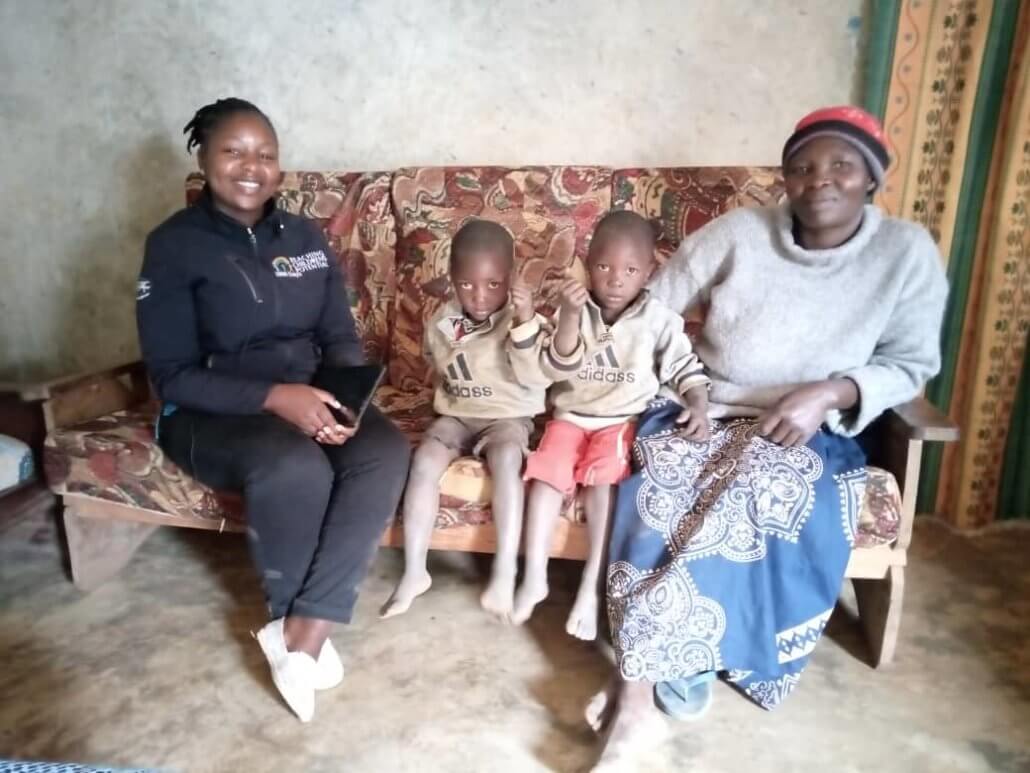
When the Evangelical Lutheran Church of Tanzania (ELCT), Global Volunteers’ host partner, announced the job opportunity in 2017, I was very interested, especially when I read about the program developing in the Ukwega Ward. Global Volunteers seemed genuinely committed to helping children and families, and I was so happy to be hired first as one of the Rural Caregivers. When I was promoted to Team Leader in February 2018, I was inspired to work even harder knowing that Global Volunteers regarded me as a leader!
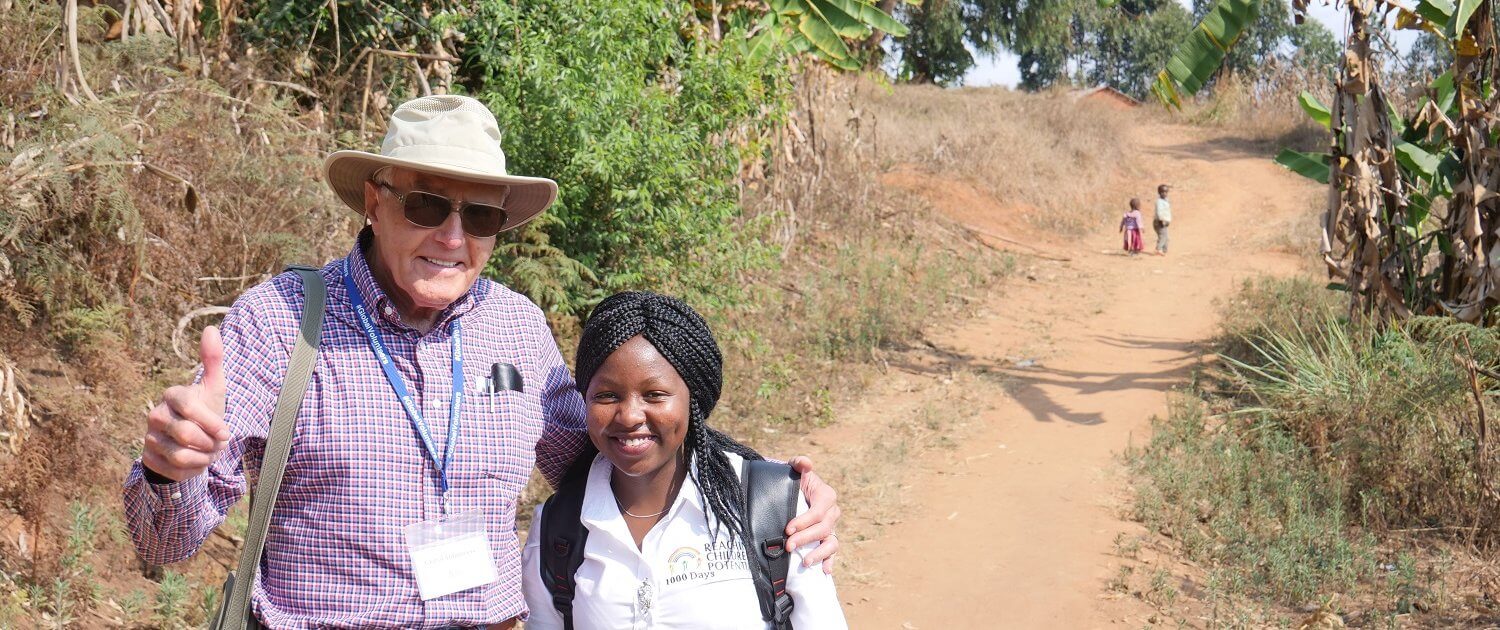
“Winnie Mshindo is an exceptionally skilled and passionate leader. She is very organized, clear in her instructions, and fair in her treatment of all volunteers.”
– Lynette Aytch, 2019 volunteer with Global Volunteers’ Corporate Partner ZERO TO THREE
What do volunteers gain by serving in the Ukwega Ward?
The longer volunteers are able to serve, the more they will learn from the community both in terms of Tanzanian culture and local people’s goals and challenges. The people are so loving and kind. They smile whenever they see you and welcome you to their home. They appreciate whatever volunteers are doing to help them – as previous volunteers have made them feel comfortable to be themselves.
There are so many interesting customs that volunteers learn about – celebrations, weddings, funerals, land division, government, the education system, and more. During free time, volunteers can opt to go on a safari with fellow team members, which is another enjoyable way to learn about Tanzania. There are many diverse animals that volunteers can see on a safari as we are lucky enough to be home to the “Big Five” – lions, leopards, rhinos, elephants, and buffalo. For those who like to kick back and relax, there is also a fire pit in the courtyard of the RCP Center, where people can sit in the evenings and enjoy the beautiful stars in the dark sky.
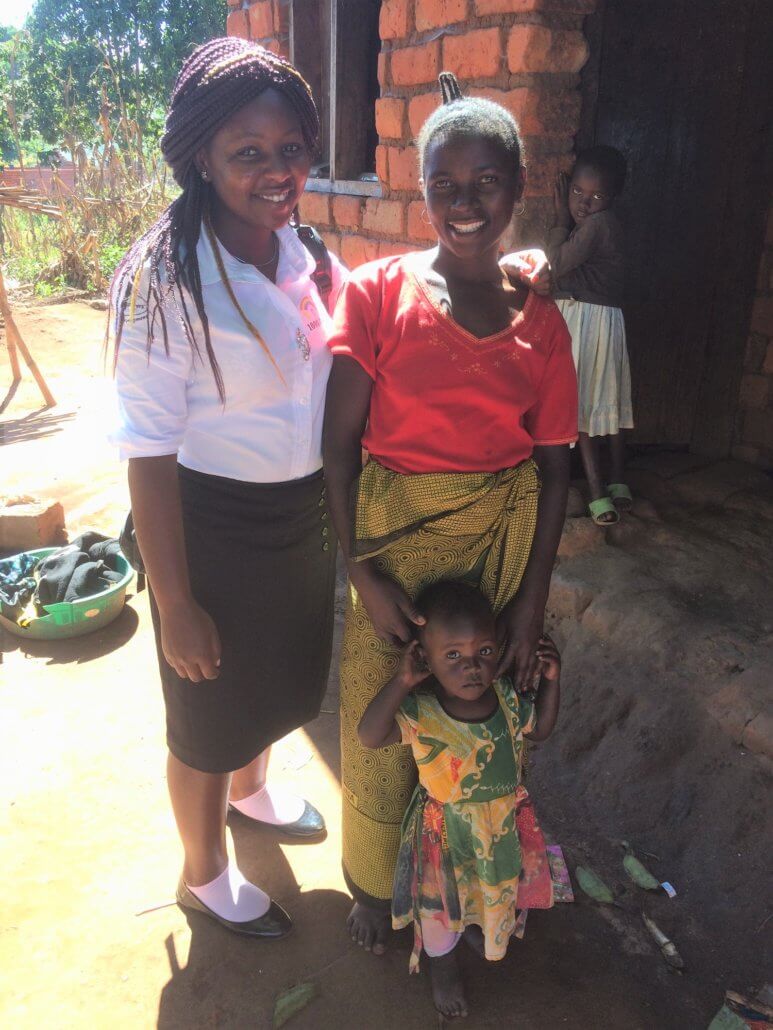
Winnie visits with an RCP family in Tanzania. 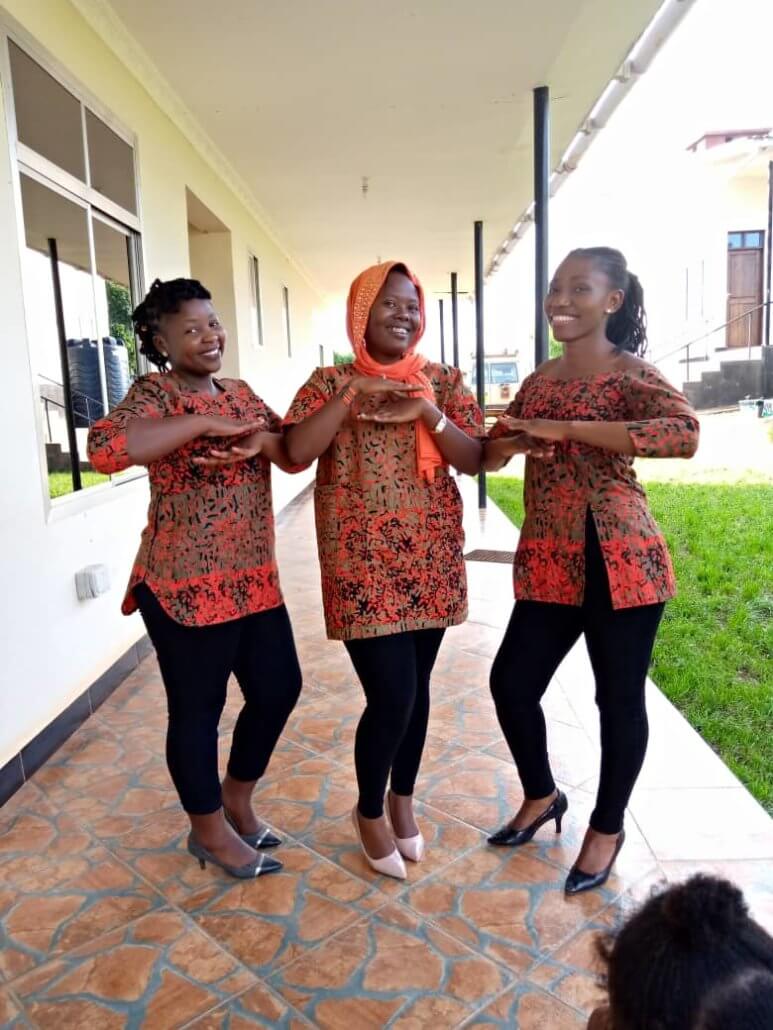
Winnie, Husna, and Anna — all Global Volunteers staff — love to entertain.
What was it like moving to Ipalamwa and adjusting to village life?
Actually, my journey moving to Ipalamwa was a bit frustrating because I was not used to village life and I have never lived in a village before. But life doesn’t stop teaching, so we learn every day. So I said to myself, “Winnie, you need to adjust to this life because there is something for you to learn for the whole time you’ll be here.” It didn’t take me very long to adjust to the environment. And actually, I was happy because I started to live an independent life. In Iringa, I live with my mother. But when I moved to Ipalamwa, I learned to be independent and do everything on my own.
Because the villages are quite remote, the infrastructure is a bit challenging for a person who moves from the city to the villages for the first time. But now with the Ipalamwa General Clinic, there are much better health services. Ipalamwa is a very calm place where you can enjoy the quiet and meditate. I’m so happy to have worked in such a fulfilling job as Global Volunteers Tanzania Team Leader in such a beautiful rural area. I’ll never forget how kind and welcoming the people were.
Watch this short video of a fly-over of the RCP Center in Ipalamwa.
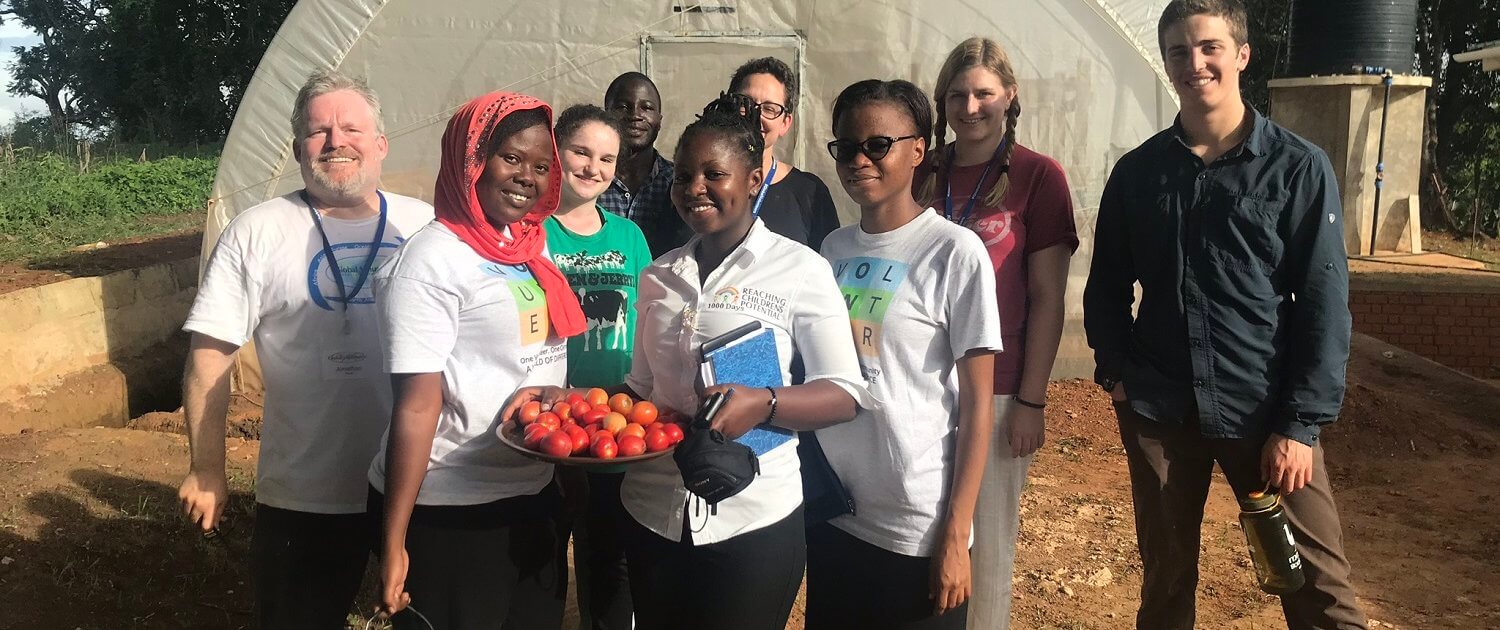
How does Global Volunteers help the community?
Every volunteer does their part toward a collective goal of providing human and economic development. From providing labor-related help in schools, to English instruction and tutoring of school subjects and giving safety and social stimulation in childcare roles, the volunteers are an integral part in the community’s success. There are so many stunted children in rural villages in Tanzania, and there are a lot of ways to help. The RCP program in the Ukwega Ward has been very effective in opening the eyes of many parents.
In the Western world, parents have access to Early Childhood Family Education (ECFE), which does not exist in these mountain villages. Volunteers help parents help their children grow in all kinds of ways. Since the program started in 2017, there are already so many improvements we have seen. The recent RCP Impact Report shows the risk of stunted children has decreased significantly, and staff are still collecting the data to ensure ongoing improvement within these families. Local families have expressed that the RCP Program is very helpful to their communities. Workshops impart knowledge to parents; home visits reinforce the knowledge and the technologies that caregivers provide. Every activity is important to reduce stunting. The meal program in the schools is improving learning, educational retention, and attendance in students. This programming is relatively new and evolving. In the short term, it’s proving to be vital in helping make children’s futures brighter!
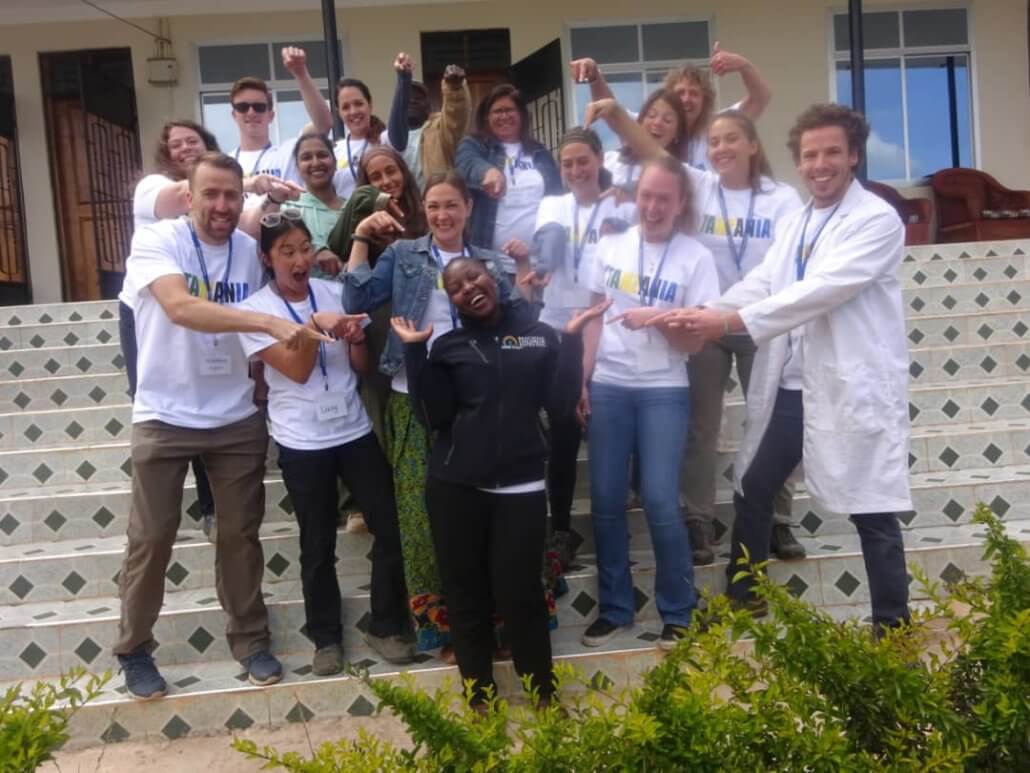

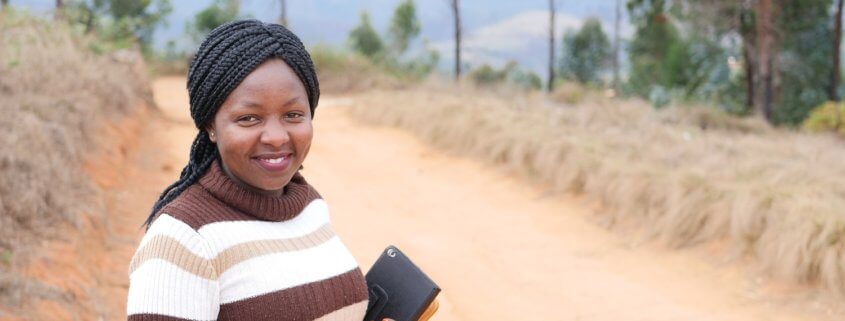


Leave a Reply
Want to join the discussion?Feel free to contribute!